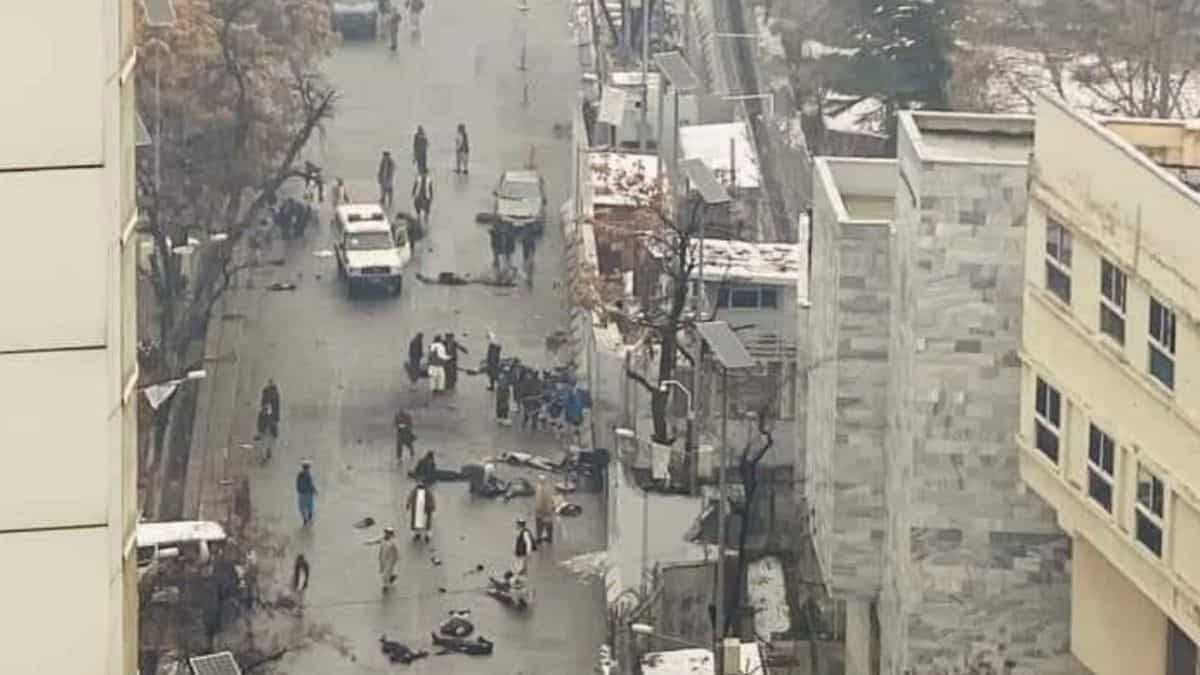Pakistan has become the focus of suspicion after a suicide bombing in the heart of Taliban-administered Kabul targeted members of Chinese delegation on the evening of January 11. The delegation was due to meet the Taliban officials in the Afghan foreign ministry, when a suicide bomber was seen detonating himself, claiming at least 20 casualties. The Islamic State (Khorasan) group claimed the responsibility for the attack.
Wednesday’s attack outside the Afghan foreign ministry was the second in less than a month in which Chinese people living in Afghanistan were principal targets. On December 10, 2022, members of Islamic State-Khorasan (IS-K) stormed a hotel frequented by Chinese business people, wounding at least five Chinese nationals.
Abhijit Iyer-Mitra, senior research fellow at New Delhi-based Institute of Peace and Conflict Studies told WION that Islamic State-Khorasan is “entirely a fabrication of Pakistan’s Inter-Services Intelligence (IS-I).”
“Time and again it has been proven that Islamic State-Khorasan (IS-K) is a Pakistani creation,” Iyer-Mitra added.
Afghan and Pakistani Pashtuns serve as the public face of the Islamic State offshoot’s outer layer, scholars have said in the past. This composition allows IS-K members to be mobile across the perilous Af-Pak region towards Pakistan’s Khyber Pakhtunkhwa province.
Taliban actions on IS-K: Confused, contradictory
The Taliban opened gates of prisons and released the inmates after the dramatic exit of the US forces from Afghanistan in 2021 and subsequent fall of the democratically-elected Ashraf Ghani government in Kabul. Islamic State-Khorasan (IS-K) sources cited by scholar Atal Ahmadzai in his October 2022 research paper indicate that the Taliban released more than 2000 IS-K fighters right before capturing Kabul.
Among the released inmates was the one who carried out a suicide bombing attack at the Kabul airport on August 26, 2021 that killed 170 Afghan civilians and 13 US service members. As IS-K reached its peak of exposure following its attack on Kabul airport, the Taliban launched a campaign against IS-K members. The Taliban campaign against IS-K members included beheadings, drownings and on-the-spot executions, prompting many IS-K members to seek refuge in neighbouring Pakistan.
Pakistan’s suspected role in IS-K targeting Chinese nationals
Abhijit Iyer-Mitra reasoned that Pakistan does not want “anyone controlling Afghanistan except themselves”.
“Such attacks are one way to prevent direct Chinese-to-Afghan contact. It is a way of reducing the agency of the Afghan state. It is sending a warning sign to the Chinese, that, ‘don’t deal with these people without telling us’. Fundamentally everything here in terms of motive and ability only points to Pakistan,” Iyer-Mitra told WION.
According to Brigadier (retd.) Arun Sahgal, Executive Director, Forum for Strategic Initiative, the January 11 attack outside foreign ministry in Kabul highlights that “Taliban political leadership is not fully in control” of the country’s state of affairs.
“IS-K does not want Chinese presence and intends to scare away the investments,” he added, referring to a 25 year deal signed by Chinese Company, Xinjiang Central Asia Petroleum corporation for extracting oil from Amu Darya on the Afghan-Uzbek border.
WATCH WION LIVE HERE
You can now write for wionews.com and be a part of the community. Share your stories and opinions with us here.

IL PRIMO ECOMMERCE SPECIALIZZATO IN DELIZIE AL TARTUFO E CAVIALE – CAVIAREAT.COM
